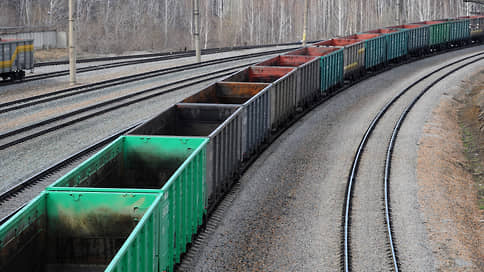Swim, swim, coal, through the West to the East – Newspaper Kommersant No. 165 (7366) of 09/08/2022
[ad_1]

The government of the Russian Federation may return a discount on rail transportation of coal, but only for the ports of the North-West. Such a measure is designed against the backdrop of the EU embargo to increase coal exports to Asia and at the same time redirect the flow of goods from the Eastern landfill. According to Kommersant’s sources in the industry, now, without discounts, export through the ports of the European part of the Russian Federation is basically unprofitable.
The government is considering the possibility of returning discounts on rail transportation of coal, but only for its supply to the ports of the North-West of the Russian Federation in order to unload the Eastern landfill. A source familiar with the situation told Kommersant about this: according to him, the instruction to consider this issue is contained in the minutes of the meeting with First Deputy Prime Minister Andrei Belousov, held at the end of August and dedicated to the problem of coal export. In the secretariat of Mr. Belousov, “Kommersant” did not answer.
The reduction coefficients for the transportation of coal, namely 0.4 for the distance and 0.895 for the transportation of thermal coal for export, which, taking into account the distance to the ports, are primarily important for shippers in Kuzbass, were canceled from June 1 to August 31 (see “Kommersant” dated May 29). At the end of August the government extended this deadline by the end of the year.
Due to Europe’s refusal to buy Russian coal, the ports of the North-West, focused on this market, were left without loading. However, there are shipments in a roundabout way to Asia.
According to the presentation of the director for port and railway projects of the UMMC, Irina Olkhovskaya, out of 78 million tons of coal delivered to the Asia-Pacific markets in January-July, only 65 million tons were sent through the ports and border crossings of the Far East, and the rest through the ports of the North-West and South .
“We received the order, we will work it out,” Alexei Shilo, deputy general director of Russian Railways, confirmed to Kommersant. However, in his opinion, when making a decision, one should proceed from economic expediency. “The percentage of the tariff for which the coal miners are now fighting does not play a significant role,” he says. “It seems strange to us that we are transporting coal to the ports of the South for 4-5 thousand km, and it transships at a price three times higher than we earn even taking into account the abolition of reducing coefficients. There is some imbalance. And if we have to reduce the price, then the rest must also reduce, otherwise the reduction in one element of the transport chain will simply give other colleagues the opportunity to earn.” It is necessary to monitor rates, he notes, recalling that Russian Railways proposed to introduce such a monitoring system (see “Kommersant” dated August 4).
“The tariff discount on the part of Russian Railways is beneficial to the Baltic ports and ports in the Murmansk region,” says a Kommersant source on the market. “In the current situation with the EU coal embargo, this discount will help make deliveries to Asia through the ports of the North and North-West economically viable for exporters, which means it will positively affect the competitive position of these ports in comparison with the ports of the South and the Far East and will allow to export additional volumes of coal”. According to him, deliveries to Asia through the southern and Far Eastern ports are profitable for exporters now, but are limited by the capacity of the railway, the ports themselves are underloaded because of this.
Kommersant’s interlocutors in coal companies note that in August the profitability of exports through the ports of the South and North-West was zero.
Thus, coal in Ust-Luga on FOB basis was sold at $120-130 per ton, which is almost at the level of prime cost. The negative factors were the strengthening of the ruble and various commissions to intermediaries. The coal companies did not provide official comments.
Now the delivery of thermal coal from Kuzbass to Novorossiysk by rail costs about $45 per ton, transshipment – about $10 per ton, sea transportation and insurance – $20 per ton, says Sergey Grishunin, head of the NRA rating service. Taking into account the cost of coal mining at $40 per ton, the total cost of delivery to Chinese ports is about $115. In China, the prices for thermal coal are now about $170, and taking into account the 30% discount provided by Russian suppliers, it turns out that Russian coal is bought for $115-120. In this regard, deliveries to China through the southern and northwestern ports of the Russian Federation have poor profitability, the analyst states, which makes the discount a rather useful tool.
[ad_2]
Source link





